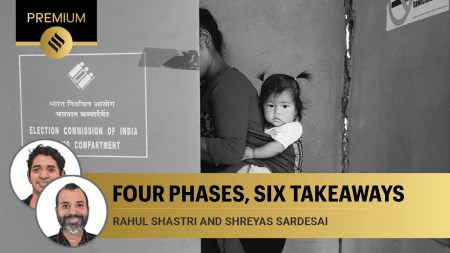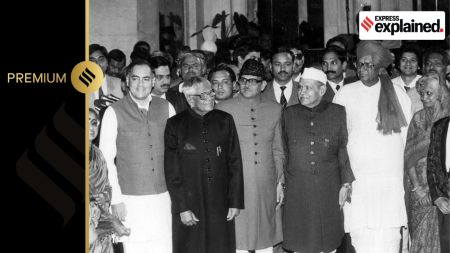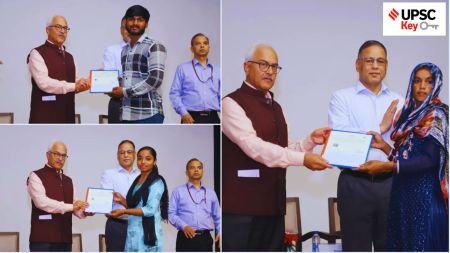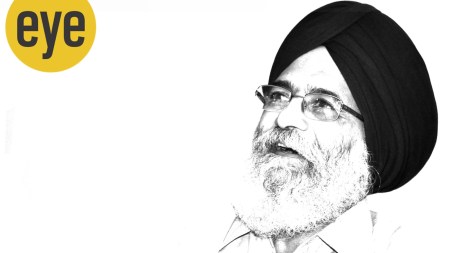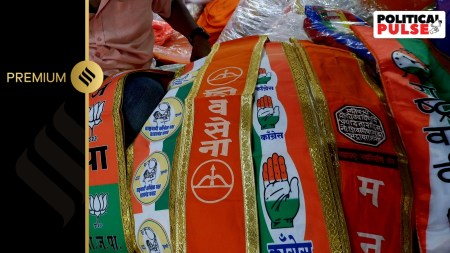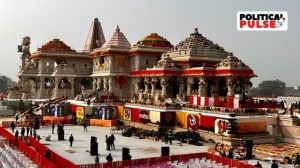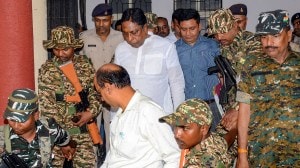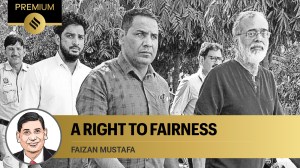- India
- International
The story of a Rs 4,400 crore fiasco at ISRO
An investigation under the Companies Act was launched against Devas, which, meanwhile, had approached the courts seeking damages for cancellation of the agreement.
 The Devas agreement, exposed institutional failings in an organisation that is often cited as an example of professional excellence.
The Devas agreement, exposed institutional failings in an organisation that is often cited as an example of professional excellence.
The fallout of the Devas agreement of 2005 is probably the most serious crisis that ISRO has faced in its history. Only once before has the widely respected space agency been involved in a public scandal, when two of its senior scientists were accused, in 1994, of espionage — falsely, as it later turned out. ISRO, as an organisation, remained unscathed in that episode, even though the careers of those two scientists were permanently scarred.
The Devas agreement, however, exposed institutional failings in an organisation that is often cited as an example of professional excellence. The nearly Rs 4,400 crore fine imposed on it by an arbitration court last week for cancelling the agreement with Devas in 2011 might not be the end of this story — some partners of Devas are pursuing their separate claims for damages from ISRO. A CBI investigation into Devas is also ongoing.
[related-post]
The Agreement
At the heart of the matter is an agreement that Antrix Corporation, a government-owned company that acts as the commercial arm of ISRO, signed with Bangalore-based Devas Multimedia in 2005 for a 12-year lease of 90% transponder space on two satellites, G-SAT6 and G-SAT6A that were yet to be launched then. Of the 150 MHz of space that ISRO owned in the S-band spectrum, Devas was allowed the use of 70 MHz to launch satellite-based applications on mobile devices. Devas, which had a few former ISRO scientists in its top management, was supposed to pay $ 300 million to Antrix over the 12-year period.
The agreement sought to give first-mover advantage to Devas in the satellite-telephony market. Satellite-based mobile services have a big advantage over terrestrial services because they do not require communication towers. Since signals are returned from the satellite in space, they are equally strong everywhere on land. Non-coverage and broken signals are non-issues. Satellite telephones currently are expensive and available only to strategic or military users. Devas promised to make these services affordable for everyone.
The Termination
The agreement became publicly known in June 2010 when it was reported that ISRO had appointed a one-man internal committee to have a re-look. By that time, K Radhakrishnan had taken over as chairman of ISRO following the retirement of G Madhavan Nair in October 2009. Nair was chairman in 2005, when the agreement was signed.

The first whiff of scandal came in February 2011, when The Hindu reported the findings of a draft audit report that had pointed out serious irregularities in the agreement, including financial mismanagement, conflict of interest, non-compliance of rules, and favouritism. With the 2G spectrum scam still unfolding, the Devas agreement, involving a different kind of spectrum, became yet another corruption talking point.
ISRO, meanwhile, had decided to annul the agreement, the matter having been discussed at a meeting of the Space Commission in July 2010. The announcement of termination, however, was made a day after the CAG draft report came to light.
Radhakrishnan said the agreement was cancelled because the S-band, a scarce resource, was needed for larger “national and strategic” purposes. An ISRO note later said circumstances had undergone a “sea change” since 2005, and in subsequent years the demand for S-band spectrum had grown manifold.
The Inquiries
But clearly, there was much more than that. This became evident in several investigations. Two committees, one headed by former Cabinet Secretary B K Chaturvedi, and another by former CVC Pratyush Sinha, were appointed to examine the processes followed, and fix responsibility for lapses.
Both panels found procedural lapses, lack of transparency, and unjustified risk-taking in finalising the agreement. Neither suggested a quid pro quo between ISRO and Devas. The Chaturvedi committee debunked claims that the agreement would have led to losses to the exchequer.
An investigation under the Companies Act was launched against Devas, which, meanwhile, had approached the courts seeking damages for cancellation of the agreement.
Earlier this year, the CBI registered a case against two Devas officials, former chairman M G Chandrasekhar and CEO R Viswanathan, and former head of Antrix Corporation, K R Sridhar Murthi, for causing wrongful gains of Rs 578 crore to Devas.
The Fallout
The most striking fallout was the action taken against Madhavan Nair, Sridhar Murthi and two other scientists, A Bhaskaranarayana, former Scientific Secretary in ISRO, and K N Shankara, former director in ISRO Satellite Centre, in 2012. The four — all of them had retired by then — were barred from taking any government position in future.
Also, a full-time chairman-cum-managing director was appointed at Antrix. (The ISRO chief was thus far also the Antrix chief) The Satellite Communications and Navigations Programme Office was restructured into three separate wings. An extra slot for a non-ISRO scientist was created in the Space Commission.
CASE FILE
2005
Jan 28: Antrix, Devas sign deal
2009
Oct: Space Commission approves G-SAT6A; K Radhakrishnan takes over as ISRO chairman
Dec 8: ISRO constitutes BN Suresh committee to review agreement
2010
June 6: Suresh committee submits report
July 2: Space Commission recommends termination of deal
2011
Feb, May: Government sets up B K Chaturvedi and Pratyush Sinha committees
Sep 2: Chaturvedi committee submits report
2012
Jan 13: Madhavan Nair, 3 others, barred from government jobs
Feb 23: Delhi HC tells govt not to take ‘coercive steps’ against Devas
2013
June: Arbitration begins; Devas claims $ 1.6 billion in damages
2015
Sept 29: Arbitration panel asks ISRO to pay Devas Rs 4,400 crore
More Explained
EXPRESS OPINION
May 17: Latest News
- 01
- 02
- 03
- 04
- 05


